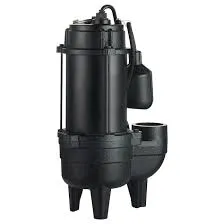Hebrew
- Afrikaans
- Albanian
- Amharic
- Arabic
- Armenian
- Azerbaijani
- Basque
- Belarusian
- Bengali
- Bosnian
- Bulgarian
- Catalan
- Cebuano
- Corsican
- Croatian
- Czech
- Danish
- Dutch
- English
- Esperanto
- Estonian
- Finnish
- French
- Frisian
- Galician
- Georgian
- German
- Greek
- Gujarati
- Haitian Creole
- hausa
- hawaiian
- Hebrew
- Hindi
- Miao
- Hungarian
- Icelandic
- igbo
- Indonesian
- irish
- Italian
- Japanese
- Javanese
- Kannada
- kazakh
- Khmer
- Rwandese
- Korean
- Kurdish
- Kyrgyz
- Lao
- Latin
- Latvian
- Lithuanian
- Luxembourgish
- Macedonian
- Malgashi
- Malay
- Malayalam
- Maltese
- Maori
- Marathi
- Mongolian
- Myanmar
- Nepali
- Norwegian
- Norwegian
- Occitan
- Pashto
- Persian
- Polish
- Portuguese
- Punjabi
- Romanian
- Russian
- Samoan
- Scottish Gaelic
- Serbian
- Sesotho
- Shona
- Sindhi
- Sinhala
- Slovak
- Slovenian
- Somali
- Spanish
- Sundanese
- Swahili
- Swedish
- Tagalog
- Tajik
- Tamil
- Tatar
- Telugu
- Thai
- Turkish
- Turkmen
- Ukrainian
- Urdu
- Uighur
- Uzbek
- Vietnamese
- Welsh
- Bantu
- Yiddish
- Yoruba
- Zulu
Telephone: +86 13120555503
Email: frank@cypump.com
אוק . 31, 2024 01:08 Back to list
ejection pump
Understanding Ejection Pumps Function and Applications
Ejection pumps, a vital component in various sectors, play a crucial role in managing wastewater and maintaining efficient drainage systems. These pumps work by removing waste or excess liquid from areas where gravity alone cannot facilitate proper drainage. Their operational efficiency and reliability make them essential in both residential and industrial applications.
An ejection pump typically consists of a motor, impeller, and a basin that collects the wastewater. When the basin fills to a certain level, the pump activates, utilizing the kinetic energy generated by the motor to move the waste through pipes and away from the source. The process ensures that sewage and other effluents are redirected to treatment facilities or septic tanks, preventing backups and maintaining sanitation.
In residential settings, ejection pumps are often found in basements or lower-level bathrooms that are below the main sewer line
. Without these pumps, homeowners would be at risk of severe plumbing issues, including unpleasant odors and potential health hazards. In industrial applications, ejection pumps are employed in manufacturing plants, restaurants, and commercial buildings where wastewater management is essential for operational efficiency.ejection pump

One significant advantage of ejection pumps is their ability to handle larger solids compared to standard sump pumps. This feature is particularly beneficial in commercial settings, where food debris and other solid waste can clog traditional systems. Ejection pumps are designed to grind and expel these solids, ensuring smooth operation and reducing the frequency of maintenance required.
Moreover, advancements in technology have led to the development of more efficient ejection pumps. Many modern pumps are equipped with smart features, such as automatic float switches that monitor water levels and ensure the pump activates only when necessary. This not only conserves energy but also extends the lifespan of the pump, resulting in lower operational costs.
In conclusion, ejection pumps are indispensable in the realm of water and waste management. Their ability to handle diverse applications—from residential areas to industrial facilities—highlights their versatility and importance. As the need for effective wastewater solutions continues to grow, ejection pumps will undoubtedly remain a key player in ensuring sustainable and efficient drainage systems across various sectors. Investing in a quality ejection pump can lead to significant improvements in waste management practices, safeguarding both the environment and public health.
-
High-Efficiency Submersible Effluent Pump for Sewage & Wastewater Solutions
NewsJul.08,2025
-
High Quality CH Warman Slurry Pump Factory - Leading Horizontal Slurry Pump Supplier
NewsJul.08,2025
-
Hot Sale Chemical Circulating Pump – Efficient & Durable Slurry Circulating Pump Solutions
NewsJul.08,2025
-
High-Efficiency Submersible Dredge Pump for Sand & Gravel Durable Dredge Slurry Pumps Solutions
NewsJul.07,2025
-
Wholesale Slurry Pump Impeller Supplier – High-Quality & Efficient Pump Parts for Enhanced Performance
NewsJul.07,2025
-
High-Efficiency Water Submersible Pumps Reliable Water Pump for Potable Water Supply
NewsJul.06,2025










